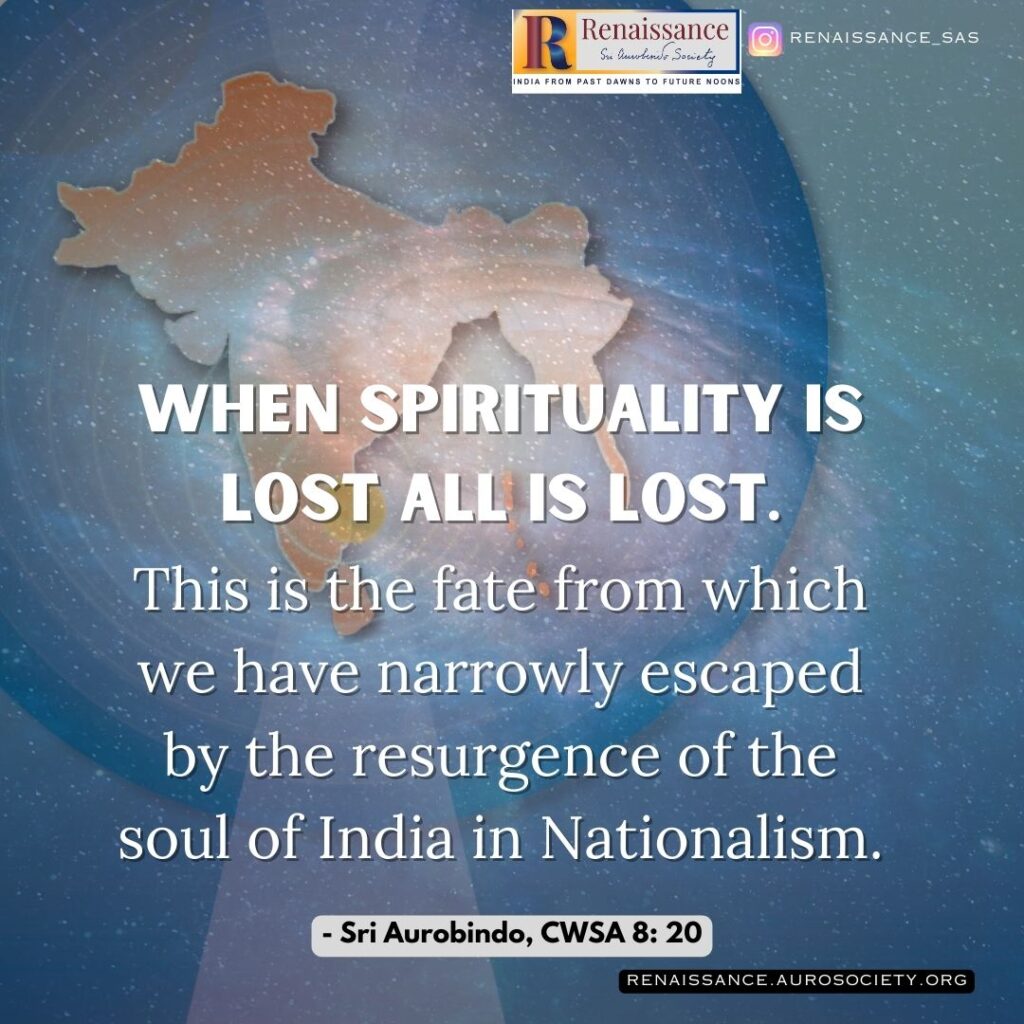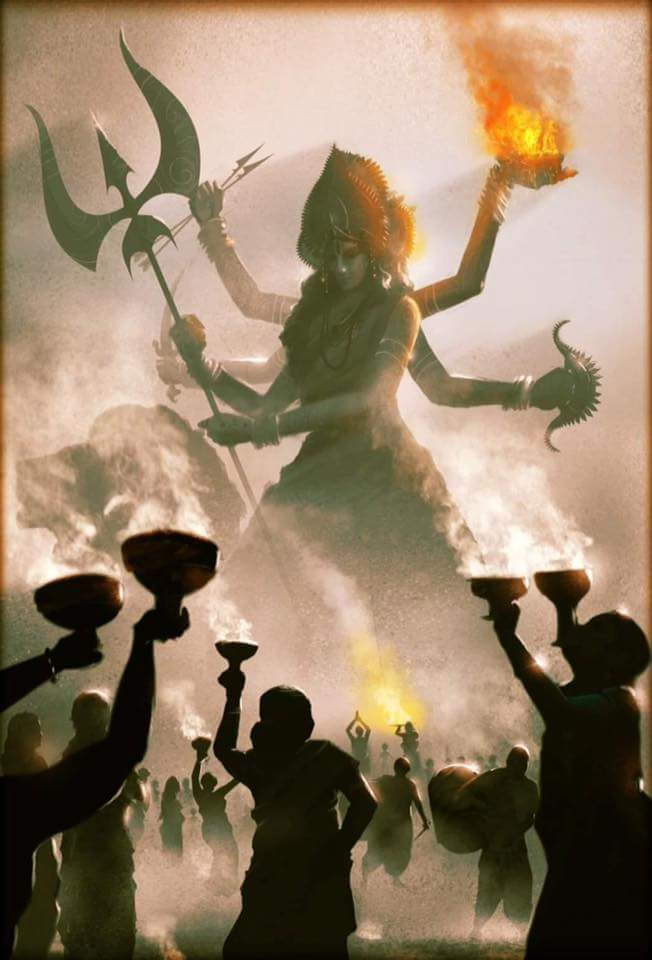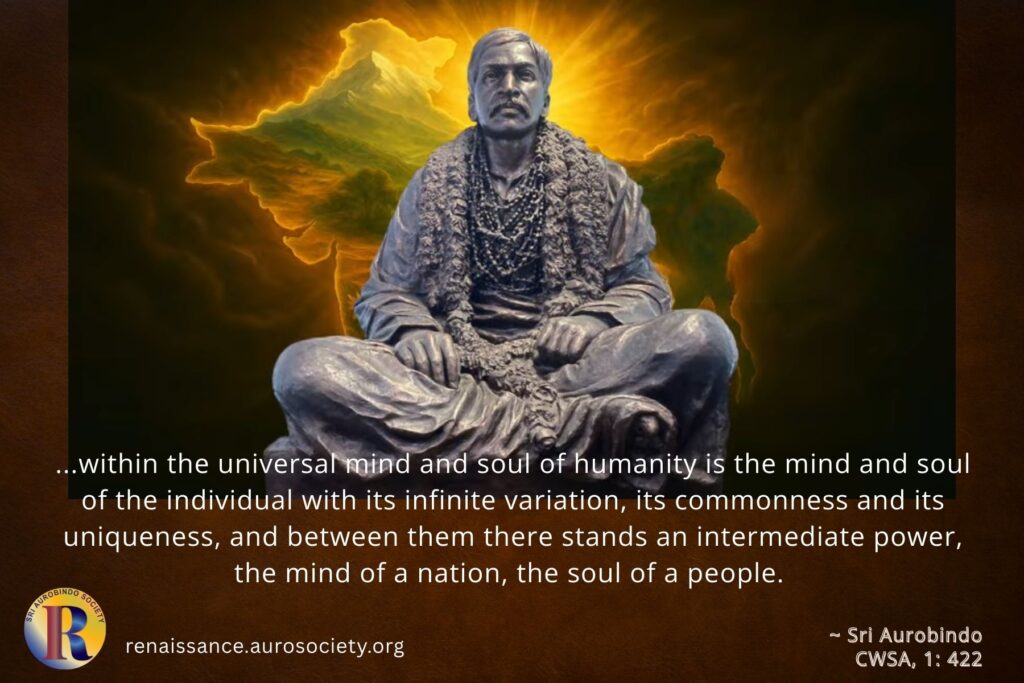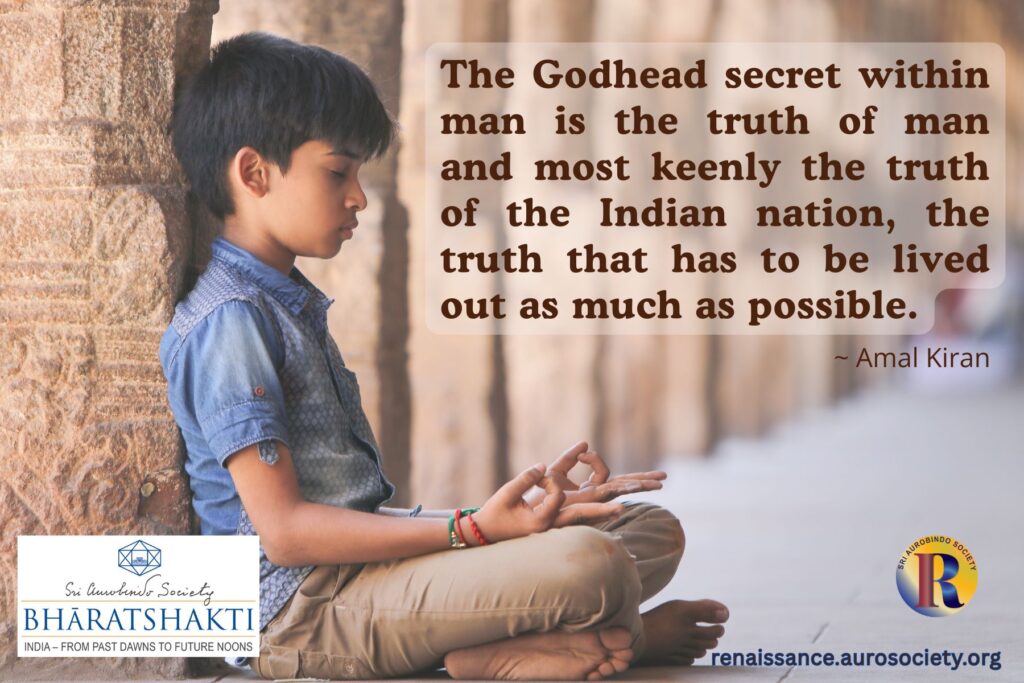Volume 1, Issue 7
Author: Agali Venkappa Sastri
Continued from Part 10
THE BASIS OF SPIRITUAL NATIONALISM
The spurious political agitation of the nineteenth century was succeeded by a realistic nationalistic phase under Tilak. Independence was claimed as of right and at the same time constructive genius was displayed. Then came the moral phase of Indian nationalism organized by Gandhi which by internal strength and aided by world conditions availed to secure freedom for India. It completes the preliminary movement.
The trammels of political bondage cast off, India has now to answer a creative test in respect of herself, in respect of the world at large by the way in which she uses her freedom. Socialistic, communistic, radical ideologies, most of them still Western in inspiration, are battling for the victorious possession of the national mind and the sovereign direction of affairs. The old guard representing the continuous tradition in Indian politics is at the helm.
We must arrive at a deeper subjectivity and make spirituality the sole principle of the new effort if India is to be true to her age-long endeavour and render to the world the gift “of her spiritual knowledge and her means for the spiritualisation of life to the whole race.” (CWSA, Vol. 36, p. 475)
When spirituality is lost, all is lost. This is the fate from which we have narrowly escaped by the resurgence of the soul of India in Nationalism.
~ CWSA, Vol. 8, p. 20

THE NEED FOR A NEW SYNTHESIS
The vivid and convincing realization of the power of the spirit in Sri Ramakrishna, and the reaffirmation of the gospel of Sri Ramakrishna by Swami Vivekananda led to an awakening of the soul of the common Indian people from the slumber of centuries. After the ethical discipline enforced by M. K. Gandhi and after the concentration of national energies in certain directions for securing the immediate objective of freedom, a wider and deeper permeation of the national consciousness is now the need of the times.
A new synthesis is now necessary to gather all the past acquisitions of the Indian spirit, psyche and mind, and express it in a new structure of thought that shall become the basis of a new creation. This new synthesis however must be in line with the true spirit of India, and therefore, must be spiritual in its essence. The work of such a spiritual evolution in both the individual and national consciousness “is not to solve human problems on the past or present mental basis, but to create a new foundation of our being and our life and knowledge.” (CWSA, Vol. 22, p. 916)
The Life Divine and other writings of Sri Aurobindo which gather in their immense scope all the heritage of our race with whatever additions it can profitably coalesce of Western thought indicate the shape the new creation should assume. In fact, they liberate the energy necessary for the new creation they adumbrate.
THE ROLE OF TIME
Time is an indispensable factor in all evolution, time which witnesses dramatic reversals and catastrophic changes which really are, all the while, a mixing up of the elements for a predestined new formation intended by Nature, the secret will in things. When the evolution is from within outward, as in India’s case, time is a necessary aid. It indicates inward ripeness and then will follow precipitate expression.
A thing fails in time because it has no necessity in the cosmic plan. A thing succeeds only when the Transcendental sanctions, the universal needs and the individual wills; this triple rhythm is the very necessity of all manifestation in time. As Sri Aurobindo writes,
His is the impetus which fulfils itself in Time and once there is movement, impetus from the spirit within, Time and the Mother take charge of it, prepare, ripen and fulfil. When the Zeitgeist, God in Time, moves in a settled direction, then the whole forces of the world are called in, to swell the established current towards the purpose decreed.
~ CWSA, Vol. 13, p. 29

The British period is an interregnum in Indian history. The clearance of the British, the acceptance of a federal polity, the resultant integration in spite of the major rift of Pakistan, all open a new chapter in India’s political evolution. India is faced with the choice indicated in the opening paragraph of this essay. We reproduce below that passage from Sri Aurobindo’s message given to Andhra University in December 1948:
By following certain tempting directions she may conceivably become a nation like many others evolving an opulent industry and commerce, a powerful organization of social and political life, an immense military strength, practising power-politics with a high degree of success, guarding and extending zealously her gains and her interests, dominating even a large part of the world, but in this apparently magnificent progression forfeiting its Swadharma, losing its soul.
Then ancient India and her spirit might disappear altogether and we would have only one more nation like the others and that would be a real gain neither to the world nor to us. There is a question whether she may prosper more harmlessly in the outward life yet lose altogether her richly massed and firmly held spiritual experience and knowledge.
It would be a tragic irony of fate if India were to throw away her spiritual heritage at the very moment when in the rest of the world there is more and more a turning towards her for spiritual help and a saving Light.
CWSA, Vol. 36, pp. 503-504



